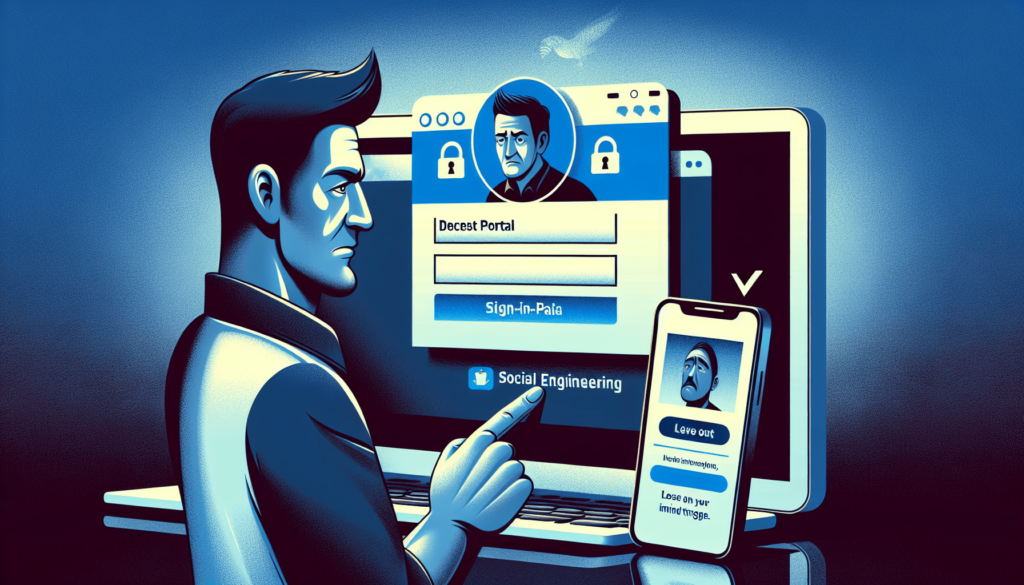In today’s interconnected world, individuals and organizations are increasingly vulnerable to the deceptive tactics of social engineering. This malicious practice involves manipulating people into divulging confidential information or performing actions that compromise security. With the rise of digital technology and online communication, attackers have more avenues than ever to exploit human psychology and trust. As cyber threats continue to evolve, understanding the dangers of social engineering is paramount in safeguarding personal and sensitive information. Awareness and education are crucial in countering this growing threat in the digital age.
Why Social Engineering Is A Growing Threat in the Digital Age
In today’s technologically advanced world, social engineering has become a significant threat to individuals and organizations alike. This method of cyber-attack relies on manipulating individuals into divulging confidential information and compromising sensitive data. As cybercriminals become more sophisticated in their tactics, it’s essential to understand why social engineering is on the rise and what steps you can take to protect yourself and your organization.

Understanding Social Engineering
Social engineering is a form of cyber-attack that relies on manipulating individuals into divulging confidential information. This can take many forms, such as phishing emails, pretexting, and baiting, among others. The goal of social engineering is to gain access to sensitive information or systems by exploiting human psychology rather than using technical means.
Phishing Emails
Phishing emails are one of the most common forms of social engineering attacks. These emails appear to be from a legitimate source, such as a bank or online retailer, and often contain a sense of urgency to prompt the recipient to take action.
Pretexting
Pretexting involves creating a false scenario to manipulate individuals into divulging sensitive information. This can include pretending to be someone in authority, such as an IT technician or customer service representative, to gain access to information or systems.
Baiting
Baiting involves leaving a physical device, such as a USB drive, in a public place for someone to find. The device is typically infected with malware, which can compromise the individual’s system once plugged in.
Why Social Engineering Is on the Rise
Social engineering attacks are on the rise for several reasons. One reason is the increasing reliance on technology in both personal and professional settings. With more people conducting their lives online, there is a wealth of information available for cybercriminals to exploit. Additionally, the COVID-19 pandemic has accelerated the shift to remote work, making individuals and organizations more vulnerable to social engineering attacks.
Increased Use of Remote Work
The shift to remote work has created new opportunities for cybercriminals to exploit vulnerabilities in organizations’ security systems. With employees working from home, there is often less oversight and protection against social engineering attacks.
Proliferation of Personal Information Online
In today’s digital age, individuals are sharing more personal information online than ever before. From social media profiles to online shopping habits, there is a wealth of data available for cybercriminals to use in social engineering attacks.
The Impact of Social Engineering
Social engineering can have far-reaching consequences for individuals and organizations. From financial loss to reputational damage, the impact of a successful social engineering attack can be devastating. It’s essential to understand the potential consequences of social engineering and take steps to protect yourself and your organization.
Financial Loss
One of the most significant impacts of social engineering is financial loss. Cybercriminals can use sensitive information obtained through social engineering attacks to steal money from individuals and organizations. This can result in significant financial hardship and long-term consequences for the victim.
Reputational Damage
Social engineering attacks can also cause reputational damage to individuals and organizations. If sensitive information is compromised, it can erode trust between customers, employees, and stakeholders. Rebuilding a damaged reputation can be a challenging and lengthy process.
Legal Ramifications
In some cases, social engineering attacks can have legal ramifications for individuals and organizations. Depending on the nature of the attack and the information compromised, victims may have legal recourse against the perpetrators. It’s essential to understand the legal implications of social engineering and take steps to protect yourself and your organization.
Protecting Yourself and Your Organization
Fortunately, there are steps you can take to protect yourself and your organization from social engineering attacks. By implementing robust security measures and educating yourself and your employees, you can reduce the risk of falling victim to social engineering.
Employee Training
One of the most effective ways to protect your organization from social engineering attacks is to provide comprehensive training to your employees. This training should include identifying phishing emails, pretexting, and other forms of social engineering. By educating your employees on how to recognize and respond to social engineering attacks, you can reduce the risk of a successful attack.
Multi-Factor Authentication
Implementing multi-factor authentication is another essential step in protecting your organization from social engineering attacks. By requiring multiple forms of identification to access sensitive information or systems, you can add an extra layer of security that makes it more difficult for cybercriminals to gain unauthorized access.
Regular Security Audits
Regular security audits are crucial in identifying and addressing vulnerabilities in your organization’s security systems. By conducting thorough security audits, you can identify areas of weakness and take steps to strengthen your defenses against social engineering attacks.

Conclusion
In conclusion, social engineering is a growing threat in the digital age that can have far-reaching consequences for individuals and organizations. By understanding how social engineering works, why it is on the rise, and the potential impact it can have, you can take steps to protect yourself and your organization. By implementing robust security measures, providing comprehensive training to your employees, and conducting regular security audits, you can reduce the risk of falling victim to social engineering attacks. Stay vigilant, stay informed, and stay secure in an increasingly digitized world.



